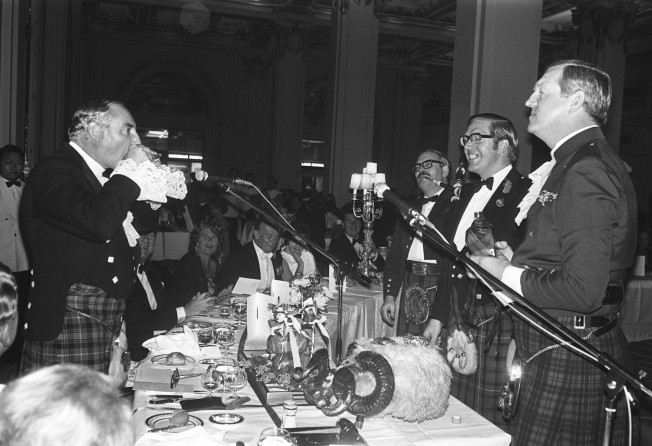Then & now: Network protocols
Social life in the SAR has long been ruled by a sense of utility, writes Jason Wordie

In a society overwhelmingly dominated by business, social "networking" dominates local life. Not a night passes without a cocktail event in full, clamorous swing somewhere in Hong Kong. But determining just where personal friendships end and business relationships start is tricky. The boundaries can be confusingly fluid and almost impossible to define in this city; what seem like genuine connections in good times can evaporate overnight when professional circumstances change or are perceived to be going wrong. The gimlet-eyed utility with which so many people treat one another can be chilling; sincere friendships based on personal kindness and mutual interests are sadly limited when the worth of every relationship is shrewdly calculated, carefully monetised and strategically evaluated over time.
From the 1840s to the present day, Hong Kong's European society has been defined by transience and correspondingly shallow personal relationships. Expatriate society everywhere is characterised by a relative absence of lifelong friends and close family. In such a world, people only exist for their perceived instrumental value. And when that value passes, they are discarded. But how did newly arrived people in the past "network" and so define and validate themselves - quickly - within a society of strangers?
For Europeans, churches and Freemasons' lodges offered the two main routes to social acceptance, and their memberships frequently interlocked. Hong Kong Cemetery in Happy Valley, formerly the Colonial Cemetery, has numerous graves bearing Masonic inscriptions. These organisations offered an immediate "in", and allowed some initial "benefit of the doubt" to newcomers. Once connections were established, how individuals managed and built upon these relationships was up to them.
Both groups locked individuals into supportive networks, though at the price of heeding conformist social attitudes. But as most Europeans who came to Hong Kong were highly conventional people, with little scope for originality of thought or behaviour (as remains largely the case in contemporary expatriate society), further circumscription hardly mattered.
National societies, such as the St George's and St Andrew's societies, which held regular dinners and annual booze-soaked charity balls, also provided a networking focus. These groups even performed a charitable function, enabling members who had fallen on hard times to go "home". Benevolence in Hong Kong - then as now - is seldom without its ulterior aspects; removing social embarrassments who had somehow let down the side also had a key role in the maintenance of European prestige.
Social networking was as important for Chinese newcomers as it was for those of other ethni-cities; it was only in the 1971 census that - for the first time - a majority of Chinese residents claimed birth in Hong Kong rather than outside of it. Tung heung wui, ("same native place associations"), clan associations, trade or mercantile guilds and - closely binding all these together - triad societies, all played a role in establishing and maintaining networks.
Contemporary Hong Kong's business networking events have mostly superseded the roles once filled by more traditional groups. Cold-blooded though the gatherings may be - rictus- grinned people doling out name cards like so much confetti and hectically reciting their "elevator" spiels and closely edited personal histories - at least some honesty pertains to them. A networking event is what it is - an attempt to quickly get to know people who may be of personal or professional use. Unlike regular attendance at a religious service or lodge function, contemporary networking events have no serious pretentions towards any purpose higher than enhanced individual opportunity.